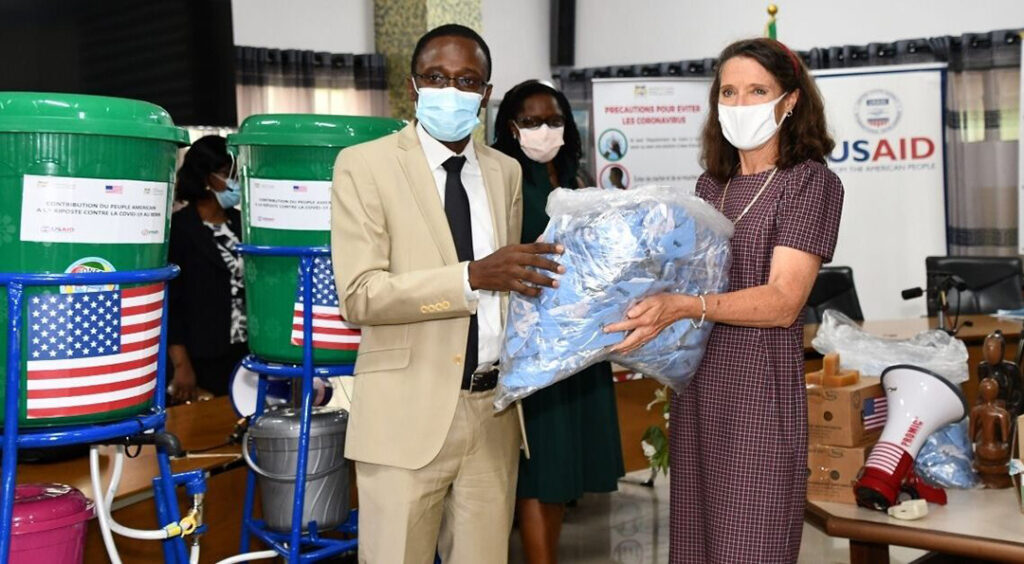ADF STAFF
The U.S. provided $1.2 million worth of medical equipment and other supplies to Benin in late May to strengthen the country’s COVID-19 response.
The items were distributed to Alibori, Atakora, Ouémé and Plateau, four of Benin’s 12 administrative departments. The donations include 417,400 surgical masks, 22,568 cloth masks for adults, 3,218 cloth masks for children, 7,400 boxes of gloves, 2,673 liters of hand sanitizer, 632 infrared thermometers, 169 megaphones and 100 hand-washing stations.
“These materials symbolize our partnership with the Beninese people, not only in our fight against COVID-19, but also in our partnership towards a safer, healthier and more prosperous future for all,” said U.S. Ambassador Patricia Mahoney during a handover ceremony.
The U.S. is helping deliver protective equipment and health supplies to 2,811 community health workers, 316 health facilities and 96 care centers for orphans, older people and those with physical disabilities.
The delivery was part of $4.5 million in U.S. assistance to Benin since the pandemic began.
As a second wave of infections spread in February, the U.S. delivered relief packages to the departments of Atlantique, Collines and Mono. The packages included more than 1,300 hand-washing stations to health facilities and primary and secondary schools; masks and hand-washing stations to community health workers; and audio equipment to help educate the public about COVID-19.
The U.S. also helped train and equip more than 1,000 volunteer health workers to monitor COVID-19 cases and supported two mobile rapid-response teams to assist health facilities with testing, contact tracing and patient case management.
The U.S. also invested in a program that helps Beninese entrepreneurs produce, promote and sell products to limit the spread of COVID-19, including hand-washing stations, toilets and latrine parts. The program helped entrepreneurs demonstrate their products and educate the public about healthy hygiene practices.
Before the pandemic, Benin had one of the world’s lowest rates of sanitation access. Only 11% of Beninese homes have a facility for hand hygiene, according to the World Health Organization (WHO).
As COVID-19 infections began to climb in Benin in October 2020, the U.S. distributed hand-washing devices, hand sanitizer, latex gloves, disposable hooded jumpsuits and sterile gowns to protect health care workers at Benin’s Army Training Hospital in Cotonou.
The U.S. also has donated equipment and supplies to help Benin establish two COVID-19 diagnostic laboratories in Kandi and Lokossa.
Since Benin’s vaccination campaign began in March, the country increased the number of vaccination centers from 78 to 115. By the end of May, the country had received more than 790,000 COVID-19 vaccine doses through COVAX, the global plan to distribute vaccines fairly.
Dr. Mamoudou Harouna Djingarey, WHO’s regional representative, applauded the country’s vaccination efforts.
“I would like to commend the Government for having the laudable ambition to plan beyond the COVAX facility’s vision by aiming to vaccinate up to 40% of the population, and for giving itself the means to achieve this goal with its own funds and by mobilizing additional
resources from other local partners,” Djingarey said on the WHO’s website.

